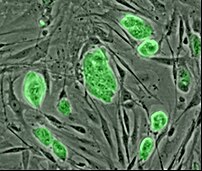[amazon_link asins=’B0713V9NWJ,B009DGNRCU,B01EUZV5JA,B00FL1CLIC,B00X68XT2E,B00061MT0M,0471593427,B00C8TWVZI,B01LR478MK’ template=’ProductCarousel’ store=’finmeacur-20′ marketplace=’US’ link_id=’c574d9a8-5c83-11e7-baaf-13bf9dbd18c1′]
The makers of two leading brands of spreads have been cleared to carry on claiming their products can reduce cholesterol.
Benecol and Flora pro.activ contain plant ingredients which EU health watchdogs now agree can help lower the risk of coronary heart disease….click & see
It is Britain’s biggest killer, with 110,000 victims a year.
Some two in three adults in Britain have raised cholesterol, which leads to clogged arteries and is a factor in heart disease.
The vital ingredients work with the body by partially blocking the entry of cholesterol into the bloodstream. It is claimed they lower bad cholesterol, known as LDL, by up to 15 per cent when used every day as part of a healthy diet and lifestyle.
Currently, millions of people rely on statin pills, prescribed by GPs, to reduce cholesterol. However, these can have side-effects, such as muscle pain.
Dietician and nutrition expert Helen Bond said: ‘People concerned about cholesterol need to have access to reliable, evidence based claims that will help them make wise food choices.
‘Dietary and lifestyle advice is always recommended as the first step for reducing cholesterol. Obesity, diabetes, raised cholesterol and a lack of physical activity are major risk factors for coronary heart disease.
‘This decision by the European Food Safety Authority will help people find the foods that will make a real difference.’
The manufacturers hailed the move to allow their so-called disease risk reduction claims as an important breakthrough.
Benecol products using the cholesterol reducing ingredients, called plant stanol esters, include drinks, yoghurts, spreads and cream cheese.
Benecol spokesman Esther van Onselen said: ‘Approval of the disease risk reduction claim is a really exciting step in helping consumers make an informed choice about which foods are proven to have a positive impact on their health.
‘There are more than 50 independent clinical studies which prove the cholesterol-lowering benefits of plant stanol esters.’
Flora pro.activ is made by Unilever, whose spokesman, Caroline Banquet, said: ‘We are delighted that the EU has now formally granted approval of our disease risk reduction claim.
‘Consumers can continue to be reassured that they can confidently trust our cholesterol-lowering health claims, in the knowledge that the science underpinning them has gone through rigorous and independent expert scrutiny.’
Unilever has carried out research into the cholesterol-lowering properties of plant ingredients since the 1980s. It first introduced Flora pro.activ spread in 2001, followed by yoghurt mini-drinks and milk drinks
Source:Mail Online, 23rd. Nov.’09
![Reblog this post [with Zemanta]](https://i0.wp.com/img.zemanta.com/reblog_e.png?w=580)

































